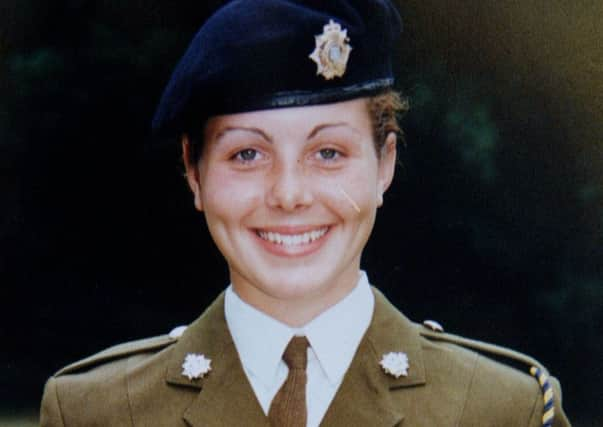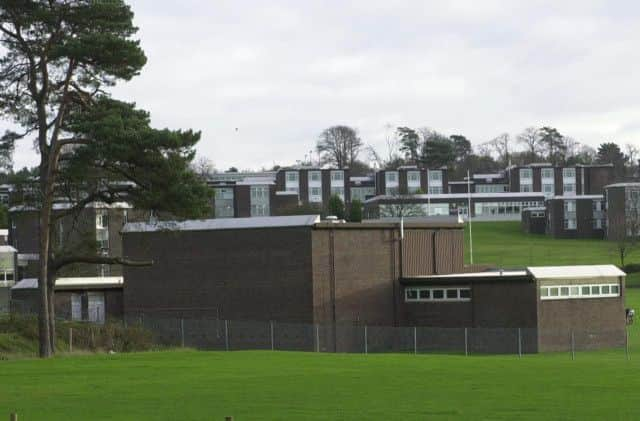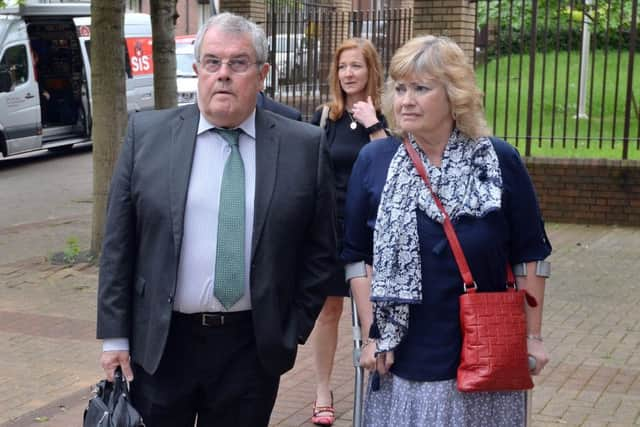Private Cheryl James killed herself at Deepcut barracks, coroner rules


The young female recruit, 18, died from a gunshot wound to the head at the Surrey base in November 1995 - one of four recruits who died there over seven years.
Delivering his conclusion following a three-month inquest into her death, Coroner Brian Barker QC said: “The conclusion is self infliction.”
He added: “This was an intentional discharge by Ms James.”


Advertisement
Hide AdAdvertisement
Hide AdThe coroner said Pte James had a “preoccupation with death” and would sometimes talk to her friends about what guests she would want at her funeral.
He said she was “disillusioned” with the Army and had a troubled adolescence which included an overdose.
She had light-heartedly talked to friends about how “easy” it would be to shoot oneself at the Army barracks.
Mr Barker said: “There can be no reasonable doubt that Ms James carried out an intended action and knew that its consequence would be death.


Advertisement
Hide AdAdvertisement
Hide Ad“I’m satisfied so that I’m sure Ms James inflicted the fatal shot and intended to die.”
Formally recording his verdict, Mr Barker said Pte James died as a result of suicide.
He said: “Without knowing the reasons for her actions, it is of course difficult to identify the cause.
“Ms James’ morale may have been lowered by the general regime where she lived.


Advertisement
Hide AdAdvertisement
Hide Ad“In the last week of her life, she wrote of her wish to leave the Army and her plans to feign migraines to achieve this.
“There is, however, no basis to establish that Ms James’ disillusionment with the Army or any dislike of the Deepcut regime was, on the balance of probabilities, such as to cause her to wish to die.
Mr Barker suggested the system at the barracks had created a “dangerous situation and provided the opportunity for her to take her life. That is lone armed guard duty”.
He added: “Ms James should not have been on armed guard duty alone. Moreover, the failure sits within the wider context of the Army at the time neither recognising, nor taking any steps to reduce, the potential risk of trainees using their service weapons against themselves.”


Advertisement
Hide AdAdvertisement
Hide AdMr Barker praised Pte James’ parents, Des and Doreen, for fighting to discover the truth behind their daughter’s death.
He said: “Mr and Mrs James, for you it has been a long and very harrowing road to try to obtain a proper forum for the investigation.
“We have explored as best we can what could be unearthed at this late stage within the legal constraints I am bound by.
“Clear answers as to why are just not there to be seen.”
He praised Mr James’ tenacity and said his battle for justice had been key in encouraging the Army to drive through reforms to improve the welfare and support it gives its young recruits.
Advertisement
Hide AdAdvertisement
Hide AdMr Barker said there has been “a complete re-evaluation of the approach to proper care given to young people who volunteer to train and eventually serve their country”.
The inquest had heard that sexual promiscuity and heavy drinking were rife at Deepcut barracks while Pte James was stationed there.
Instructors and officers flouted Army rules and had sexual relationships with the young recruits, and some instructors “saw young females as a sexual challenge”.
The three-month inquest had heard claims from Mark Beards, another private at Deepcut, that Pte James had been sexually assaulted at the barracks, but this was dismissed as “fantasy” by the coroner.
Advertisement
Hide AdAdvertisement
Hide AdMr Barker said there was no evidence Pte James was subject to “unwanted sexual harassment, abuse or bullying by any person at the barracks”.
On a broader note, he found that Deepcut had breached its duty of care to its young recruits by not having enough officers to train and look after the squaddies.
He said there was evidence of “improper relations between instructors and trainees”.
He launched a scathing attack on he “insufficient” and “haphazard provision of welfare support”, adding that “the general culture of Deepcut in 1995 was far below the standard expected”.
Advertisement
Hide AdAdvertisement
Hide AdBored and without adequate supervision or training from their officers, the young recruits at the barracks turned to sex and drinking to occupy their time, he added.
The family of Private James have waited almost 21 years for a proper investigation into her death.
At the outset of the inquest this year the 18-year-old’s father Des said he hoped for “justice” for his daughter, and he told coroner Brian Barker QC he wanted a “thorough investigation” into what happened.
The James’s have long asserted that the original probe into the circumstances of her death was not good enough, making an assumption the young private had killed herself, rather than properly examining all the possibilities.
Advertisement
Hide AdAdvertisement
Hide AdThe original inquest, less than a month after she died, recorded an open verdict.
Seven years later Surrey Police announced they would review her death, as well as those of three other recruits who died at Deepcut Barracks in that period.
By 2003 Surrey Police had concluded there were no grounds for prosecution in relation to the deaths, and a year later the families’ calls for a public inquiry were rejected by the Government.
The 2006 Blake Review, looking at allegations of abuse and bullying at the barracks, was highly critical of the training environment but stuck with the conclusion that the deaths were probably self-inflicted.
Advertisement
Hide AdAdvertisement
Hide AdIn 2014, three years after a 2011 finding by Devon and Cornwall Police that the Surrey force had failed to properly investigate a potential suspect in Pte James’ death, her family had a breakthrough when High Court judges ordered a long-awaited fresh inquest.
Her body was exhumed in 2015 and metallic fragments were recovered for testing.
Ahead of this year’s inquest Mr James and his wife Doreen launched an appeal for anyone who might have any information or be able to give evidence to come forward, and they spoke of their gratitude to those who did, praising them for being “extremely courageous”.
On day one of the three-month inquest Mr James said he would be satisfied simply knowing “everything that could be done has been done”.
During the probe both Surrey Police and the Ministry of Defence apologised to the James family for everything they have had to endure in the past two decades.